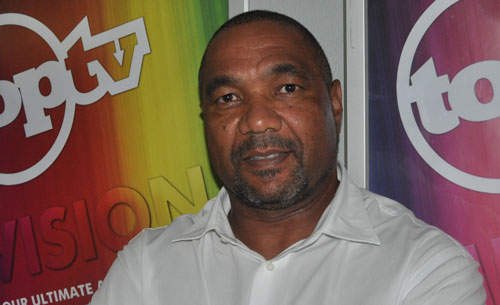
DStv rival TopTV has sold 360 000 decoders since its launch two years ago, but of these only about half are actively using the service, the company’s chairman and acting CEO, Eddie Mbalo, has revealed.
He tells TechCentral that TopTV, which is owned by On Digital Media (ODM), currently has between 160 000 and 200 000 paying subscribers at any given time.
This is problematic given that TopTV has heavily subsidised the cost of decoders and installations to entice users onto its service. “We have to look at how to bring those people back and that means improving our content offerings,” Mbalo says.
Mbalo, who is acting in the CEO role following the recent departure of founding CEO Vino Govender, says one of the company’s top priorities is ensuring it understands why consumers buy its decoders and elect not to continue subscribing.
“It could be attributable to the fact that we don’t have big sports rights,” he says. Rival MultiChoice, which owns DStv, has secured rights for top-flight local and international rugby, cricket and football, including the Super 15, Currie Cup and Premier Soccer League matches.
“There is confusion out there, with people not understanding what is at play in terms of the rights issues, particularly around sport,” Mbalo says. “If we can’t provide sport, we have to provide an alternative.”
TopTV is struggling to make headway in a market dominated by DStv, despite being the only one of four companies licensed by the Independent Communications Authority of SA (Icasa) several years ago to launch commercial services. The others, Super 5 Media (formerly Telkom Media), Walking on Water Television (WowTV) and eSat (a sister company to e.tv) have not launched offerings, though WowTV and Super 5 claim they are still hoping to offer commercial services.
Mbalo says TopTV plans to offer a range of niche sports as a way of enticing sports-loving South Africans to the service. But he admits the company isn’t in a position to get into a bidding war with MultiChoice for top local and international games.
“There are lots of sports out there, outside the premier sports,” he says. “I think it’s up to TopTV to identify its own niche.”
He says that for competitive reasons he can’t say which sports rights the company hopes to secure, but he says “there is a lot of material out there”.
“MultiChoice has 25 years of apartheid backing behind them,” he adds. “We can’t take them on. It would be dangerous. But we can find our own niche and beat them where we’re good. South Africans are looking for an alternative viewing experience and that’s what we need to be giving them.”
He warns that if MultiChoice begins bidding against TopTV for sports rights in more niche areas, the company will consider turning to regulators for protection and assistance. “If they are going to use their dominance … we will be left with no choice but to pursue our options.”
He says he hopes MultiChoice “plays a fair game”, but if it doesn’t TopTV won’t rule out the option of lodging complaints with competition authorities and with Icasa. “It’s really up to [MultiChoice]. If they want to use their years of dominance to stop another player, then it will become problematic.
“I prefer not to pursue premier sports, but if they are going to try and stop us from pursuing alternatives, then the gloves will come off. If they bid for those rights, then we will fight it out at the regulators.”
TopTV, he says, must come to be seen as a genuine alternative to DStv and not as a carbon copy of the incumbent’s content portfolio. The company has no intention of chasing the top end of the market, which he says DStv has sewn up with its DStv Premium platform. But he believes there is still a large addressable market in the middle tier of consumers. “We need to identify what those opportunities are and go for them.”
Mbalo says TopTV will become sustainably profitable with between 350 000 and 500 000 active subscribers. “Our focus, at least in the next year or two, will be on ensuring the customers we have are happy and will stay with us.”
The company must also invest more money in developing local programming content, which Mbalo says is a big draw card for South African viewers. “Our local content offering is minimal. I am going to ensure we get more local content. That means we need to interact more with local content suppliers.”
He wants TopTV to help redefine the relationship between broadcasters and independent producers. “South Africans love local content,” he says. “We need a very strong local content offering. Everything else revolves around that.”
He says it’s not true that producing local content is necessarily a hugely costly exercise. “If you look at the old way of producing content, where a broadcaster commissions 100% ownership only to broadcast it once or twice, then it becomes expensive,” he says. “If one invests in content and distributes that content worldwide … then there’s a lot of money available.” — Duncan McLeod, TechCentral
- Subscribe to our free daily newsletter
- Follow us on Twitter or on Google+ or on Facebook
- Visit our sister website, SportsCentral (still in beta)

